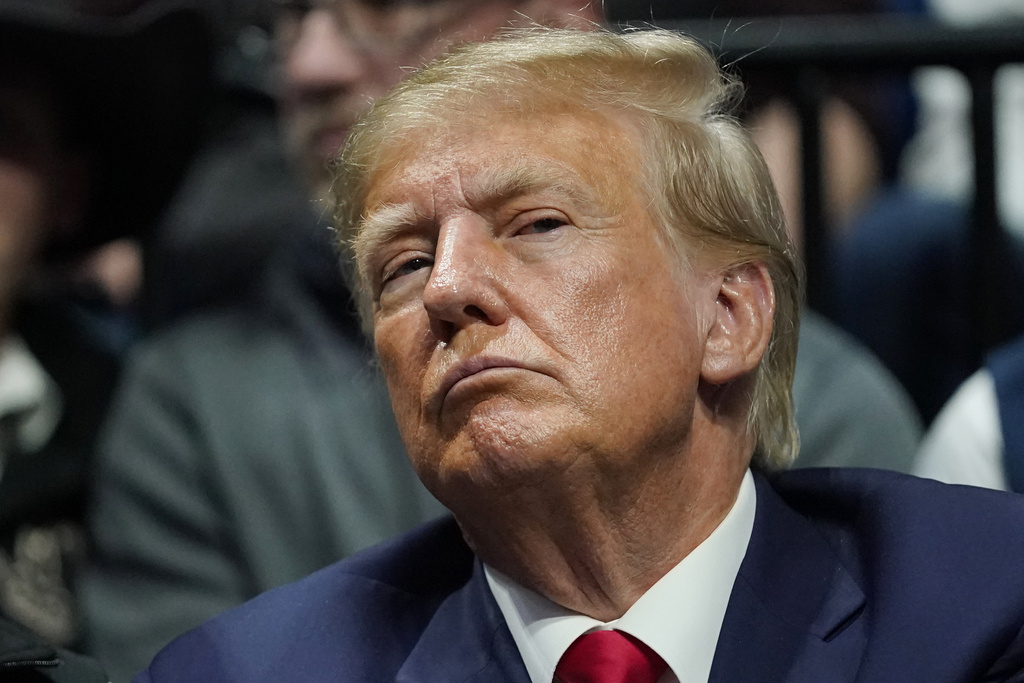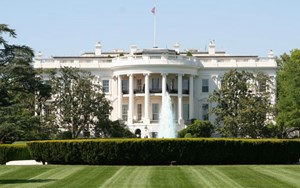Rep. Pete Sessions (R-Texas) said on Washington Watch Monday that he believes the Biden administration's failure to use U.S. veto power in a meeting of the United Nation's Security Council Monday signals a "shift" of priorities.
"Our priorities have always been, during my 25 years in Congress, about making sure that we supported Israel [and] that when they had a dangerous neighborhood that we were there. That also meant that we had to protect them in international bodies like the U.N.," Sessions told show host Tony Perkins.
Trump criticized for 'finish it up' remarks on Hamas warChad Groening, AFN.net A vocal defender of the State of Israel says she was surprised by Donald Trump’s suggestion Israel should quickly wrap up its Gaza war against Hamas because of souring public perception. During a recent Q-and-A interview with Israel Hayom, Trump was asked rather directly how he would have reacted if his own children and grandchildren had been kidnapped in the Oct. 7 attack. 
“I would say I would act very much the same way as you did,” Trump replied. “You would have to be crazy not to. Only a fool would not do that. That was a horrible attack." Farther down in the interview, however, Trump said images of buildings being toppled and falling on people have turned the world against Israel. Israel has made a “big mistake” in its public relations because of that decision, he said. "You have to finish up your war. To finish it up. You gotta get it done,” Trump said elsewhere in the interview. Jan Markell, of Olive Tree Ministries, tells AFN it sounds like Trump doesn’t “fully understand” the graveness of Israel’s situation after October 7. “Well, the problem is the Bible predicts that that is exactly what's going to happen to Israel,” she says. |
The U.N. resolution, which passed 14-0, calls for a ceasefire through the end of Ramadan on April 9. It also calls for the release of all Hamas-held hostages.
The U.S. has exercised its veto power to Israel's benefit many times through the years. By not doing so now shows a policy of fence-straddling, Sessions said.

"The United States, by not voting, made a mistake. It should have been a binding resolution to demand that the hostages be released; that the war conditions come to a close; that people be allowed to come in and see each of these areas that I believe they [Hamas] are still operating war machinery from; and to go back to where money would not be distributed any more out of the U.N., if it's going to run the war-type machine that they've got," the GOP lawmaker said.
"But that's not what the resolution was. It was non-binding because no one wants to hold the Palestinians accountable."
Sessions says U.S. policy toward Israel has been firm since Jimmy Carter was in the White House "through what was at least the Trump presidency where we kept the semblance that it was a bipartisan issue. We worked on the issues and had confidence that we could make headway."
Israeli Prime Minister Benjamin Netanyahu said failure by the U.S. to use its veto power represents a "clear retreat" from the position Washington has held since Hamas terrorists attacked Israel last Oct. 7.
"This hurts both the war effort and the effort to release the hostages because it gives Hamas hope that international pressure will allow them to accept a ceasefire without the release of our hostages," the Netanyahu's office said in The Times of Israel.
According to Sessions, the reality of what the Jewish nation experienced that day last fall clearly hasn't sunk in.
"We act like we don't really understand that Israel gets attacked, attacked and attacked by the Palestinians – and this is where the Palestinians count on the flavor of international pressure to stop the Israelis from seeing all the tunnels, from seeing all the war machinery that they have," Sessions said.
Signs that tell the story
Sessions said Democrats and Republicans are as divided on the issue of Israel as they are on spending and social issues.
"You have to see this for what it is. You can walk the halls of Congress where we are allowed to post signs outside our offices, and virtually every single Republican office has 'Pray for Israel, We stand behind Israel,' just as we do the Capitol Hill Police. Almost every single Republican office has those two signs out front. You cannot find those on Democrat offices," he said.
It's clear to Sessions that the Democratic Party "has not only given up, they've been overrun in this matter – and the casualty is that Israel is no longer a bipartisan issue."







